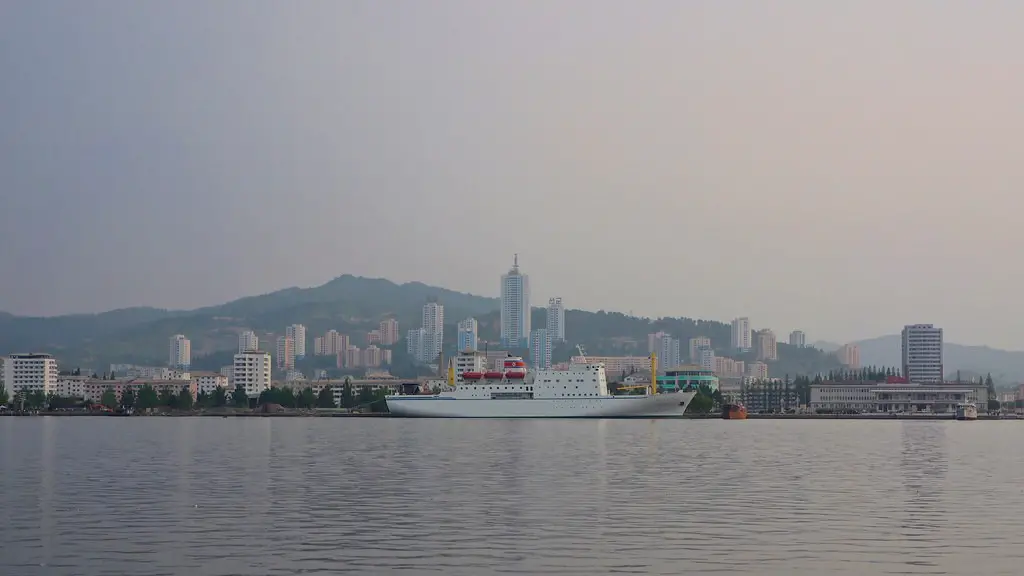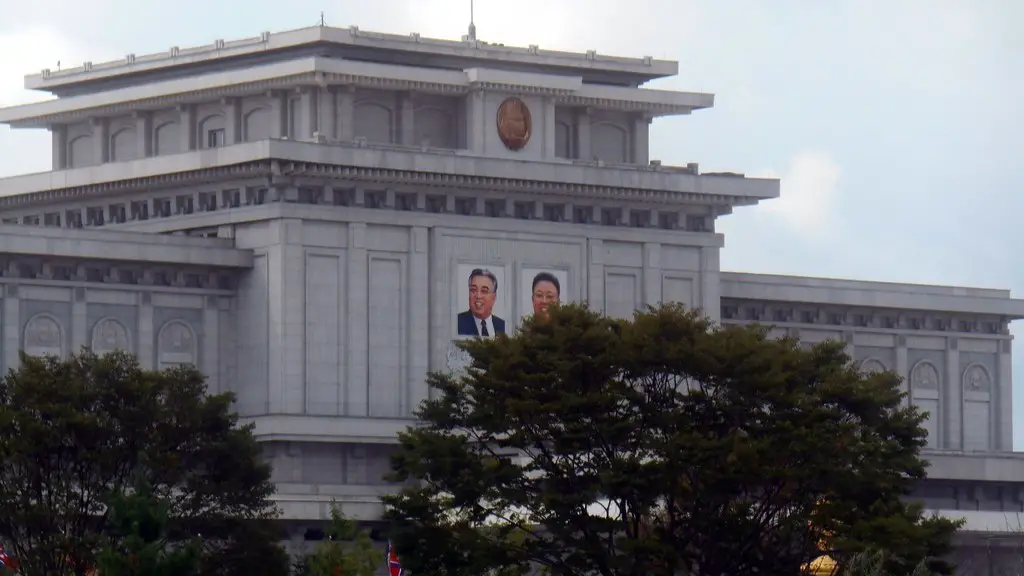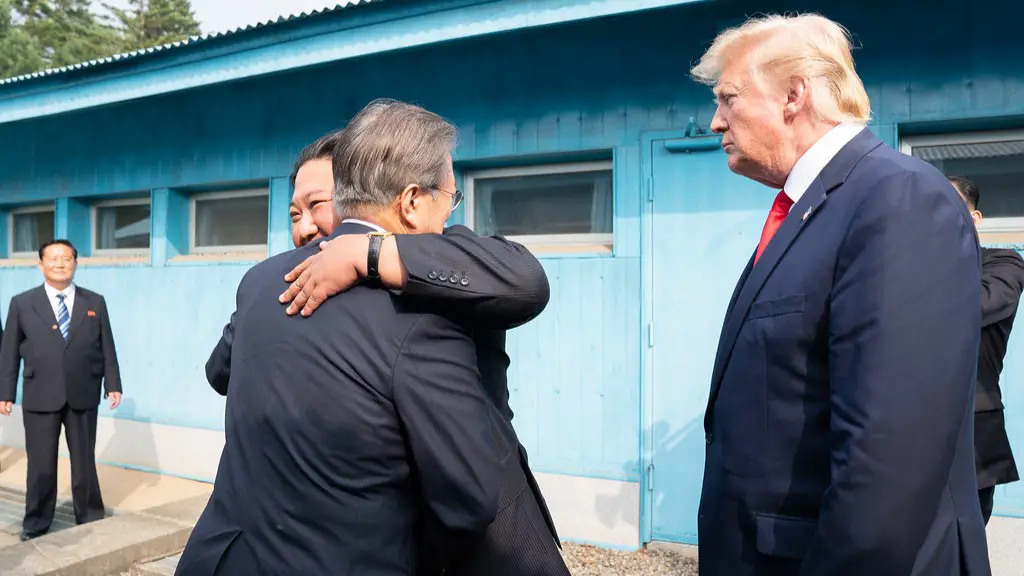The world is paying close attention to the growing tension between North Korea and the West situated on its borders like South Korea, Japan and the United States of America. With tensions mounting, speculation has intensified about what the region will look like in the aftermath of a possible conflict. As a result, the question for governments around the world is what to do about North Korea?
The rhetoric from North Korea has been strong and bellicose since the country first tested its nuclear weapons capabilities in 2006. Over the past decade, North Korea has launched several long-range ballistic missiles, tested multiple nuclear weapons and perfected its ballistic missile technology. The 2017 missile launches were the furthest reaching yet, according to the UN, and the world has been on alert ever since.
North Korea has also been accused of human rights abuses on an unprecedented scale. Reports vary, but it is believed that North Korea has thousands of political prisoners in labour camps, and that any dissent against the regime is met with extreme force and even death. So the question remains – how can the world respond?
International diplomacy has so far failed to have any positive effect on the development of North Korea’s nuclear and ballistic missile arsenals. The UN passed resolutions to limit or stop North Korea’s weapons programs and further sanctioned the country but to no avail. In response, North Korea has reacted defiantly and continues to conduct missile testing and build its nuclear arsenal.
The situation appears as if it is on the brink of reaching a tipping point, with both the United States and North Korea consistently exchanging threats. But, just as the world was about to go to war, the 2018 Korean summit made a miraculous breakthrough when both leaders agreed to the ‘denuclearization of the Korean peninsula’ and peace talks were back on the negotiating table.
The 2018 peace accord, while undoubtedly a breakthrough, still has many unsure as to the veracity of North Korea’s commitment to peace. There has been no real progress on denuclearization or the reduction of tensions, and there are many who are unconvinced that North Korea’s motives are aboveboard.
One possibility would be for the country to open up to the West and allow for greater trade, in the hope that it will encourage better relations between North Korea and other countries, as well as ease the country’s hostility towards its neighbours. Another approach could be more hard line, with an emphasis on international sanctions and an increase in pressure to get North Korea to give up its nuclear weapons and ballistic missile programs, or face the consequences.
Engagement and Diplomacy
The engagement and diplomacy approach is the most preferable option in resolving the current tensions with North Korea. It’s clear that the hard line approach has not yielded any positive results and only seems to have increased tensions further. By opening up diplomatic channels and pursuing negotiations, the West can work to encourage better relations between North Korea and the countries in the region and in turn alleviate the heightened tensions.
There are some precedents for this approach, with the 2018 Korean Summit showing that it is possible for countries to be able to sit down at the negotiating table and come to an agreement. Pursuing diplomacy allows for the international community to build trust with North Korea and hopefully make progress in disarming the country, though this could take several years.
The downsides of this approach would be that the international community could be viewed as appearing weak in the face of North Korea’s aggression. In addition, there is always the danger that North Korea will take advantage of this chance to buy time to develop and reinforce its nuclear and missile programs.
Strict Sanctions
The alternative to diplomacy is to impose even stricter sanctions on North Korea in an effort to curb its nuclear ambitions. This option could prove to be the most effective, as it has the potential to bring North Korea to the negotiating table by cutting off its access to resources and funds. It is also the approach that is supported by the US.
By exerting economic pressure and sanctions, countries from the United Nations Security Council such as the US, UK, China and Russia have the potential to apply enough pressure on North Korea to limit its missile tests and development of its nuclear program. There is an indicative that this approach could work, as sanctions slowly started to have an effect by the end of 2017.
On the other hand, this approach may not be the most effective in the short term. If sanctions on North Korea become too severe, the country could choose to re-engage in rebuilding its nuclear arsenal, or it could even choose to attack its neighbours. This could set North Korea and the region up for a catastrophic armed conflict that could bring untold death and destruction.
Upholding Human Rights
Regardless of the approach taken to North Korea, it is essential that human rights remain an essential priority. Reports of extensive human rights abuses committed within the country are widely documented and it is vital that the global community continues to shed light on these atrocities.
In particular, North Korea has one of the worst records of imprisoning political opponents and those seen to be dissidents, with reports of public executions often being a common occurrence. It is important that the international community prioritise human rights and freedom of speech in any negotiations, as any progress made in other areas may be for nought if that progress does not include an improvement of the human rights situation within North Korea.
Acknowledging the Country’s Right to Exist
It is also important to acknowledge the right of North Korea to exist as a sovereign nation. Although it is often viewed as a hostile, rogue nation, North Korea has the same right to exist and pursue its own interests just as any other country does, and should not be demonized for doing so. The West must acknowledge North Korea’s right to exist and respect its sovereignty.
That being said, it is essential to also ensure that North Korea adheres to the international standards of conduct and behavior to ensure that the region remains safe and secure. North Korea should be held accountable and ensure that the international community’s calls for disarmament and peace are met in order to further build regional stability.
Maritime Security
Part of the safety and security efforts in the region should also focus on maritime security, as this is an area that is frequently overlooked but carries huge implications for the region. North Korea has long been accused of illicit activities such as money laundering, drug trafficking and even illegal nuclear activities via its maritime vessels. As such, it is important that international organisations such as the UN continue to monitor North Korean vessels to ensure they are not engaged in any illegal activities.
The right to freedom of navigation is essential in ensuring regional stability and preventing any illegal activities from taking place in international waters. The UN Security Council should look to increase its presence in the region to deter North Korean vessels from engaging in any illicit activities and to ensure that the international laws of the sea are upheld.
Cooperation and Non-Aggression
Ultimately, the focus of negotiations should be on cooperation and non-aggression between North Korea, its neighbours and the international community at large. It is essential that all parties approach the situation from a working standpoint and focus on building better relations between each other.
The international community, along with North Korea’s neighbours, have a vested interest in reducing tensions and coming to an amicable agreement. This requires patience and understanding on both sides, as well as a willingness to work together and compromise. There has already been progress made on certain issues and it is essential that this continues if there is to be a lasting peace in the region.
Going forward, the international community must remain vigilant and ensure that any negotiations remain focused on cooperation and non-aggression. Working together, the world can hope to find a peaceful and lasting solution that benefits all parties involved and guarantees the safety and security of the region.





